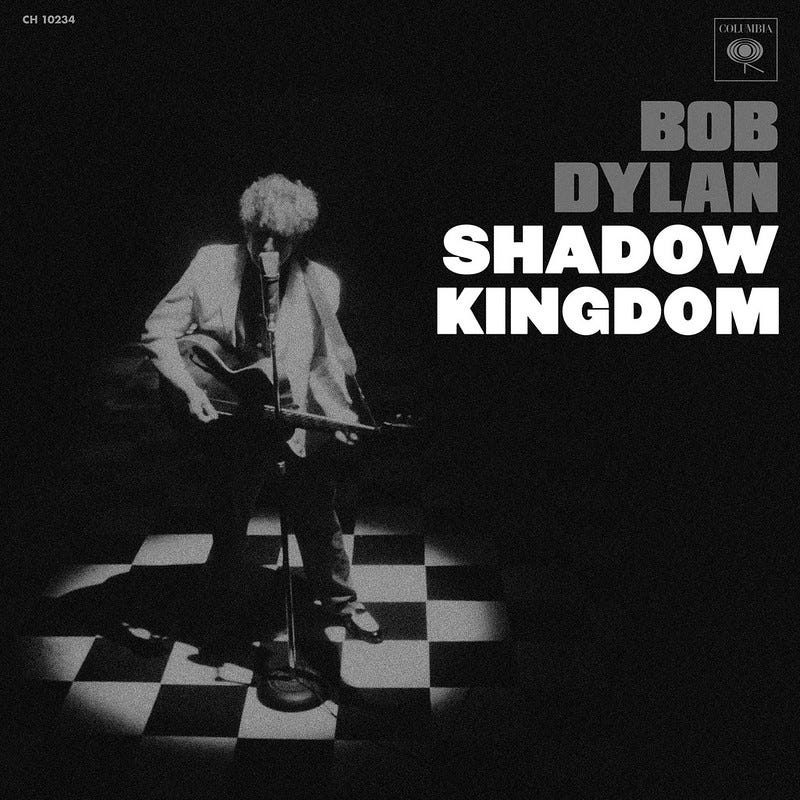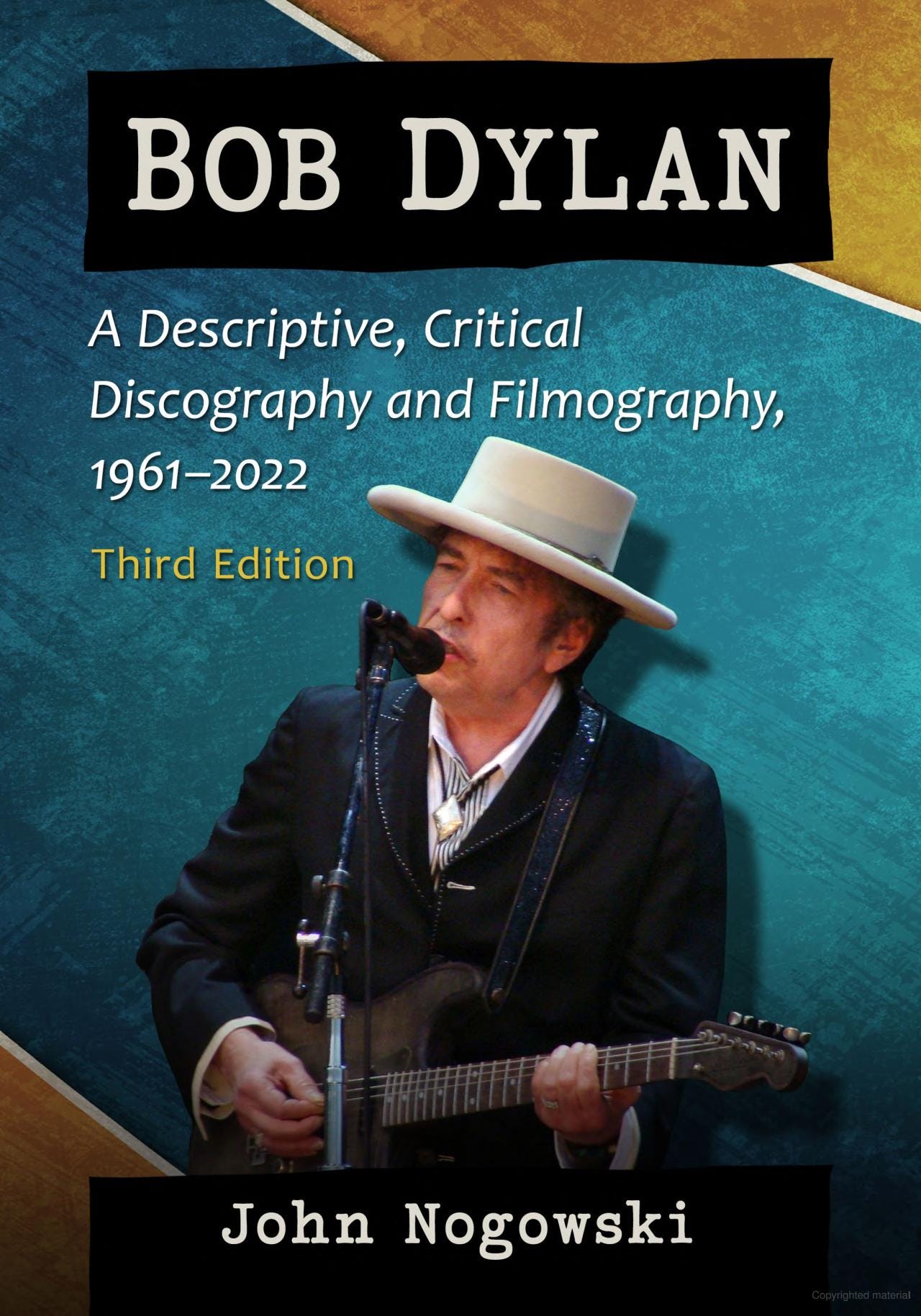Bob Dylan: Keepin' Alive
Can you just have a chat with Uncle Bob? Well....
What is it like to play music with musical legend, Nobel Prize laureate, American folk hero Bob Dylan? This is a question that has haunted a young man named Ray Padgett the way the John F. Kennedy assassination haunted District Attorney Jim Garrison. His story was told, sort of, in Oliver Stone’s “JFK.” Maybe you saw it.
Padgett is the author of a book, “Pledging My Time” which is a collection of extensive interviews with maybe 30% of all the musicians who’ve played a note with Uncle Bob. Fortunately for Padgett, an enthusiastic, one might say “as obsessed” as a young Sherlock Holmes, our Bob likes to change musicians the way Steve Earle liked to get married (seven times, including the same woman twice.)
Consequently, our man Padgett, who has a Substack called “Flaggin’ Down The Double E’s”, has had quite a field to pick from and he has, he has. And not to denigrate his persistence or the breadth of the challenge, not to mention the risk the talk-ees take by chatting about their time with Uncle Bob, a decision that might well preclude further opportunities with our hero, he doesn’t let up.
I haven’t read the entire book but I have riffed through Padgett’s Substack posts a fair amount and for me, anyway, there’s not a lot of stuff I didn’t already know or imagine. Yeah, he’s not big on multiple takes, no, he doesn’t talk a lot, yeah, he’s as likely to change keys without warning or explanation, no, he’s not into explaining ANYTHING and so on.
As we know, there are “Dylanologists” out there who want to collect every single live version of “Silvio,” who debate whether or not Take One or Take Five of “Positively Fourth Street” should have been released, who can recall the date (and maybe the time) that Bob last played “Queen Jane Approximately.”
So, for this Dylan devotee — Padgett would much more deserve the “Dylanologist” tag than I — there didn’t seem to be a lot of things I didn’t already know or was able to guess. And that’s no slam on Ray, the kid is busting his ass. Just not something I needed to know.
Then I read today’s Substack post ((https://substack.com/home/post/p-167997861) an interview with accordionist Alexander Burke and up popped something that was really interesting and, I think, revealing.
Bob Dylan’s highly — almost obsessively choreographed “Shadow Kingdom.”
Having written three editions of a Bob Dylan book for McFarland and Co. (Bob Dylan: A Descriptive, Critical Discography and Filmography, 1961-2022 - available now on Amazon) I’m not unfamiliar with how Bob responds to hero worship, fan adulation, prying writers, folks who ache to tell him how he transformed their life.
If you wonder about that, watch a bit of the “Getting To Dylan” documentary where he lays it out with a snarl (Pretty funny, actually) while “working” on the film “Hearts Of Fire” in Montreal. What was it like to direct Bob? Well, the director, Richard Marquand, died immediately after completing the film, which may be just an unfortunate coincidence.
In writing Edition Two of my Dylan book, I remember U2’s Bono talking about Dylan writing a killer verse, then scrubbing it because it was too close to what people expect of a Bob Dylan verse. So while Bob may act like he doesn’t read anything about him or care what people, especially critics say, he does. Did you hear his Musicares speech?
So the question that Padgett’s diligence raised chatting with Burke was this: What is it like to try and talk to Uncle Bob these days? How does he navigate through this life, he’s in his 80’s now, with this endless run of adulation around him at every turn? How does he do it?
Like this, according to Burke:
“Has anyone told you about his assistant?” he asked Padgett. “He had a guy who looked like a cowboy. Jeans, cowboy boots, white shirt. He sounded like he was from the South.
“Every day before filming, he would come up and be like, “I got a friend coming. You might recognize him, you might not, but there’s a few rules. You can’t talk about the past, how much you love any of his art that you might know about, and you can’t talk about the future, what he’s planning on doing. You can only talk about the present. Nothing about the present is off limits, but you’re not allowed to talk about the past or the future.”
“I’m paraphrasing, he did it much more succinctly and charismatically, but it was essentially, we could talk to Dylan about anything as long as we were talking about the present. With Dylan, how many times did someone say, “Your song saved my life,” “Your song got me through my parents death”? He’s heard it every day of his life.
“I tried to talk to him a lot, but he’s really not interested in talking about himself. He was very interested in all of us. Like, “Who are you?” “What’s your band?” He thought we were a proper band that they had just hired. He said, “I really like your band. I’d like to play with you all sometime.”
So that’s how it works. Don’t talk about “Blonde On Blonde” or “Oh Mercy” or even “Hearts Of Fire” (not that you’d want to.) Keep it current, looking not past tomorrow, not back. Don’t expect philosophical pronouncements, dating advice, or forecasts which way the wind will blow.
Bob Dylan has gotten where he is by leaving all that behind, despite every third person he meets trying to bring him back there. You may remember that U2 did a resurgent record a few years back titled “All That You Can’t Leave Behind,” and it was their best album in years. They went back to move forward.
As we know, Bob Dylan is headed in another direction. No direction home, you might say.
HERE IS BOB DYLAN’S INTERVIEW DURING ‘HEARTS OF FIRE”
John Nogowski’s “Bob Dylan: A Descriptive, Critical Discography and Filmography 1961-2022” is available on Amazon.




Bob's reluctance to talk about the past, or to avoid getting bogged down listening to fans drone on about Shelter from the Storm is understandable, but then again he ventured to New York in part to pay homage to Woody Guthrie. So he knows what it feels like to be on the other side. What's his reaction when a musician tells Bob that he was a major influence and insipration? The same cold shoulder?
Let me forget about today until tomorrow